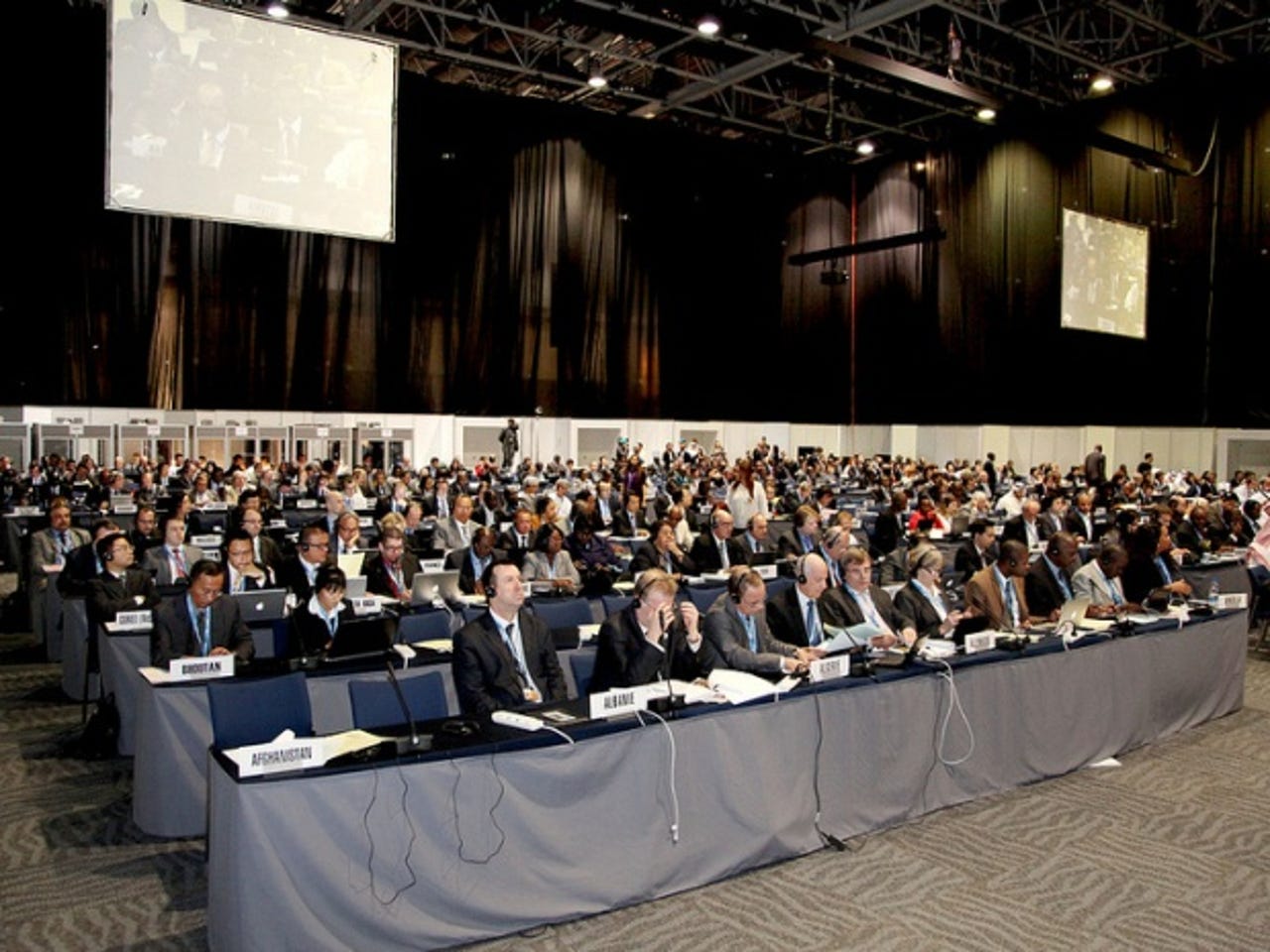ITU chief claims Dubai meeting 'success', despite collapse of talks

The revision of the world's telecoms rules has been a "success", according to the head of the International Telecommunications Union, despite the fact that countries such as the US and UK have refused to sign it.

In a press conference at the close of the World Conference on International Telecommunications (WCIT) in Dubai, ITU chief Hamadoun Toure said he was "pleased that this conference is coming very successfully to an end".
Toure said the resulting changes to the international telecommunications regulations (ITRs) introduced new protections for consumers around the world, and would help billions more get online.
The US, UK, Canada and Australia walked away from negotiations on Thursday, over fears that the finalised text of the new ITRs could be interpreted as giving the ITU, a UN agency, control over elements of the internet. This was in turn seen as a way of giving governments greater powers of censorship.
What's in the ITRs?
The treaty does not once mention the words 'internet', 'broadband', 'web' nor 'content'.
However, one particularly contentious clause was Article 5B, which reads: "Member states should endeavour to take necessary measures to prevent the propagation of unsolicited bulk electronic communications and minimise its impact on international telecommunication services."
Although this could be seen to refer to SMS spam, for example, some saw the clause as making it easier for repressive regimes to classify unwanted online communications as spam and crack down on them — such regimes can already do this, of course, but the fear was that the treaty's phrasing might lend greater legitimacy to such actions.
There was also a non-binding resolution at the end of the conference which called on Toure to "continue to take the necessary steps for ITU to play an active and constructive roles in the development of broadband and the multi-stakeholder model of the internet". This, however, was not actually part of the treaty itself.
A proposal by European telcos to ban net neutrality around the world never made it through to the final text.
Final rules
Toure noted that the revised ITRs would see greater transparency in global roaming charges, lead to "more investment in broadband infrastructure" and help those with disabilities.
"We hope that the treaty that has been signed today will make it possible for the remaining people without access to mobile coverage today, to the 4.5 billion people still offline… when all these people come online, we hope they will have enough infrastructure and connectivity so that traffic will continue to flow freely," Toure said.
The 20 or so countries that are not signing the new ITRs on Friday (such as the Netherlands, Sweden and Poland) will not be able to sign it in future, but they will be able to 'adhere' to the rules nonetheless, if they choose to.
This is clearly off the table for some countries such as the US and UK, but others have said they intend to take the ITRs back to their parliaments for debate and possible approval.